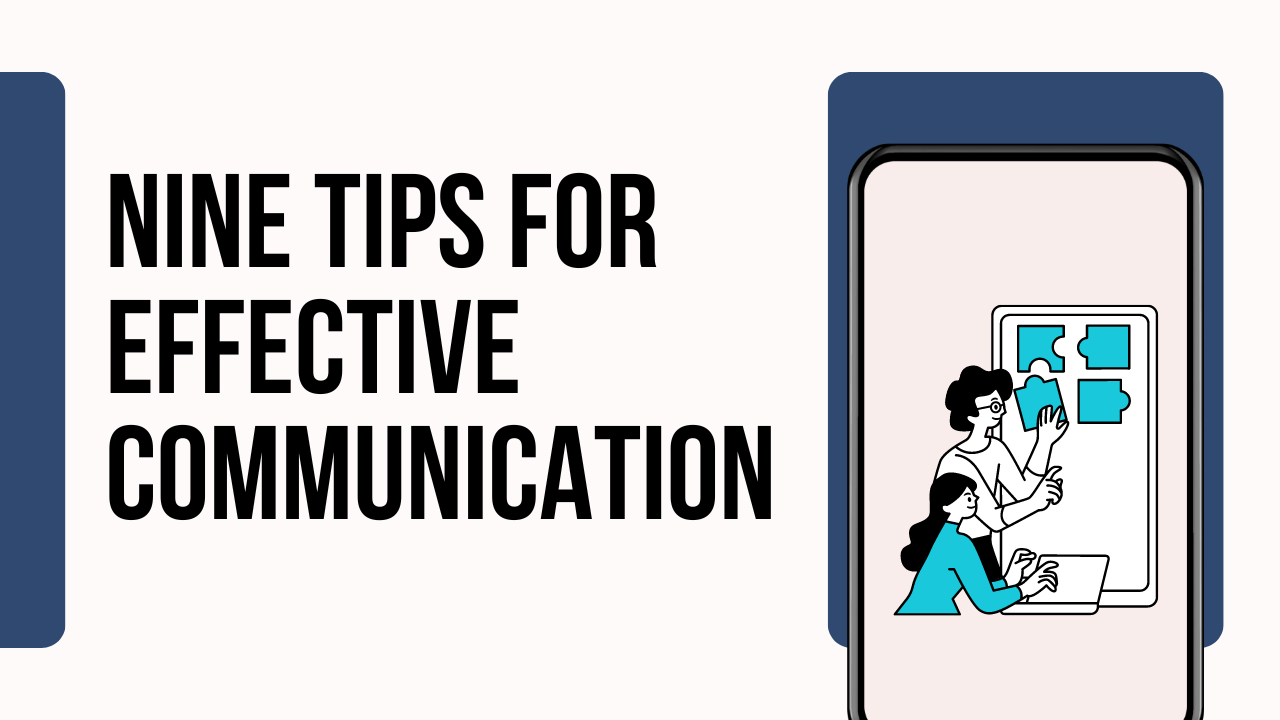Nine Tips for Effective Communication
Jan 31, 2023

As business owners, you are responsible for communicating with your employees. That’s just part of the job. And whether you have one person on the payroll or one hundred, you need to know how to effectively communicate your vision and expectations if you want to lead for long-term success.
There have been entire books dedicated to the subject, but we’re going to listen to our own advice and get straight to the point - or, nine points in this case.
- Be clear and concise: Avoid unnecessary details. Utilize bullet points or lists. Provide relevant examples. Throw in a visual aid or two if it helps get your message across. If you leave them with more questions than answers, you didn’t do your job very well.
- Practice active listening: Remember, “Two monologues don’t make a dialogue.” Say what you need to say, but then listen - actually listen - to what they say in response.
- Be aware of your nonverbal communication: Don’t look down at your phone. Don’t check the notifications on your smartwatch. Don’t get suddenly engrossed with a piece of lint stuck to your shirt hem. You’re either telling them, A) you’re not interested in what they’re saying (red flag) or, B) that you lack the confidence to maintain eye contact (another red flag).
- Adapt your communication style to your audience: Some people prefer a communication app like Telegram or Slack. Others might rather have everything typed up in an email. Still, others may want to (shudder) meet in person to hash things out. It’s important to be aware of how members of your team best accept and process information to reduce misunderstandings and miscommunication. (Side note: This is something to keep in mind when interviewing new team members. For example, if you’re someone who is never ever ever going to hold in-person meetings, make sure the people you hire don’t need that type of communication to do their job.)
- Adapt your communication style to the subject matter: Some things can’t be communicated in short snippets of text. Likewise, there are some things best summed up in a simple email. If you’re dealing with complicated or time-sensitive issues, pivoting to a dreaded in-person meeting may be necessary to avoid unnecessary back-and-forth communication or misunderstandings. And if you hold a 30-minute meeting that could have been summarized by five bullet points (and you didn’t even offer donuts), there will be rioting in the streets.
- Pace the information appropriately: You are likely the subject expert, at least in the beginning. A lot of what seems old hat to you is going to be straight-up Greek for others. Be cognizant of not overwhelming them with too much information all at once.
- Foster an open and inclusive communication environment: Regularly ask for feedback, suggestions, ideas, opinions, and concerns. Creating a space where your team feels comfortable communicating the good, the bad, and the ugly with you can uncover areas of concern or opportunities for improvement in your business.
- Give feedback: On the flip side, giving your own regular feedback is also essential. As far as we know, the general population is not made up of mind readers. Your team wants and needs to know when they’re doing their job well and what they could be doing better. That only happens if you take the time to communicate that to them.
- Build relationships: Some people straight-up say they’re not in business to make friends. And that’s fine; we’re not saying you should swap BFF bracelets with your employees. But that doesn’t mean you need to be an ass-hat, either. You don’t need to go out for beers together every weekend or invite them to your son’s bar mitzvah, but establishing some level of relationship can do wonders for your communication skills. (Not to mention, it builds loyalty to your business/brand and makes for happier, more committed employees.)
The most important thing to remember is that good communication skills take practice; you won’t get it right every time. But consistently trying to improve will have long-term benefits for not only your business…but for every area of your life.



